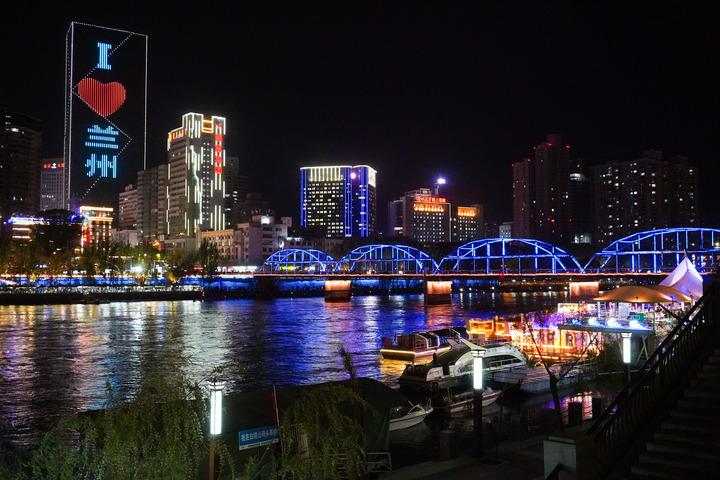LANZHOU, Aug. 22 (Xinhua) -- As dusk descended on Lanzhou, the capital of northwest China's Gansu Province, the city's bustling streets transformed into vibrant hubs. What once began as simple food and merchandise stalls have now evolved into multifaceted nightlife destinations offering healthcare, employment, and cultural experiences.
Recent graduate Zeng Fangyan navigated the vibrant market stalls with friends - not for snacks, but for potential job leads. "Night markets were strictly about food before," she noted. "Now I casually explore career opportunities here."
Over the past two years, job fairs integrated into these markets have made job hunting less formal and more accessible. And it's not just jobs, with the likes of traditional Chinese medicine (TCM) consultations and cultural heritage shows also emerging, thereby making the night market experience richer and more engaging.
In a commercial district of Lanzhou, TCM practitioners offering pulse diagnoses, acupuncture and cupping consistently attract crowds.
"It's convenient to relieve work stress while shopping at night," said a local resident surnamed Wang, who was undergoing moxibustion.
Lu Runlan, president of Lanzhou Hospital of TCM, revealed that these pop-up clinics often match hospital attendance volumes, with many customers returning for repeat treatments.
The informal "talent night markets" particularly resonate with job seekers like Hu Yifan, 31, who values the relaxed environment. Employers similarly benefit, as natural interactions facilitate spontaneous interviews and uncover overlooked talent, including older unemployed individuals or passive candidates.
Cities across China are enhancing these evolving night spaces. Nantong in east China's Jiangsu Province has partnered with major HR firms to incorporate live-streamed recruitment, AI-powered interviews and interactive job discussions at night markets. Meanwhile, southwest China's Chongqing Municipality offers experiential entrepreneurial booths, allowing young people to test business concepts in a dynamic marketplace.
Cultural enrichment has become a defining feature of this urban transformation. At an ancient street in Lanzhou, events cater to specific demographics -- pet owners, parents and seniors engage through interactive zones. Nighttime access to intangible cultural heritage exhibits, featuring intricate egg carvings, clay sculptures and paper cutting, add educational depth while outdoor stages host choir performances and fashion shows for retirees.
Han Yulong, operations manager of this ancient street, documented a 45 percent year-on-year surge in visitors.
Tea master Xu Wenxia has curated traditional tea-making techniques at this venue, with such endeavors serving not only as a form of cultural preservation but also as a career showcase. Complementing these offerings, wellness-focused nighttime snacks featuring organic ingredients and herbal teas align with youth health trends.
Lanzhou University economist Mao Jinhuang illuminates this paradigm shift: "Nighttime economy is evolving into a service-driven ecosystem of functional experiences." He further highlights that night markets now serve as critical "urban interfaces" for healthcare and social programs, addressing public demand for accessibility through innovative municipal resource allocation.
Mao envisions expansive possibilities: "Future night markets could expand further. Legal aid, counseling, skill workshops -- any service tied to daily life might emerge under neon lights as cities creatively re-imagine social spaces after dark."




 A single purchase
A single purchase









